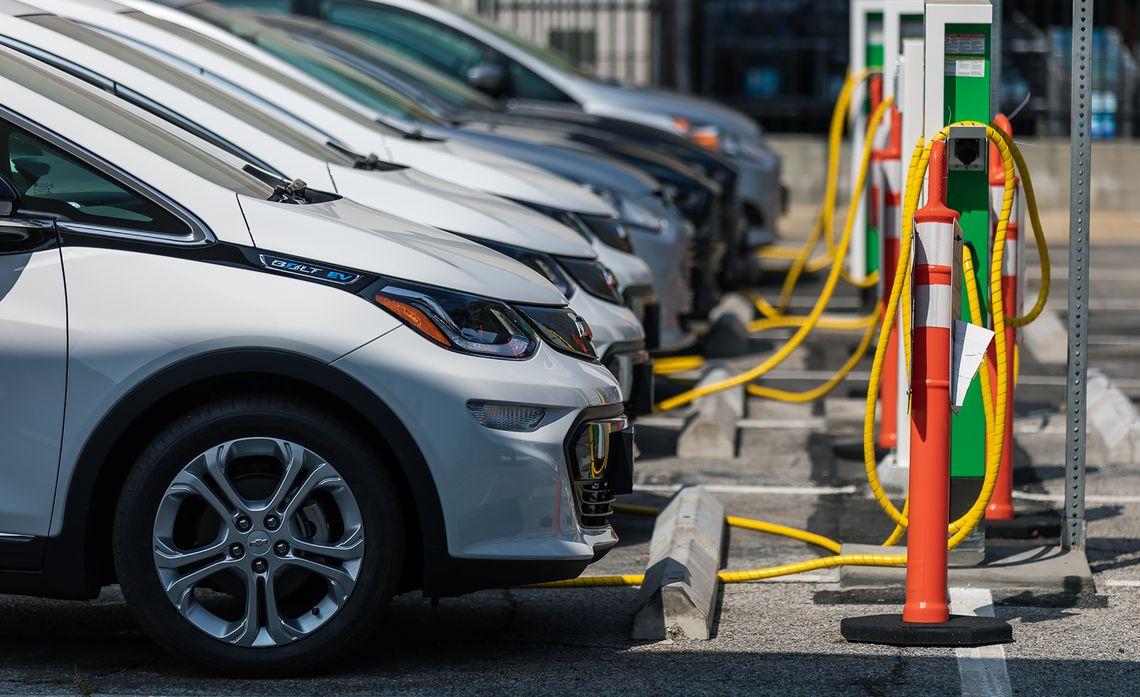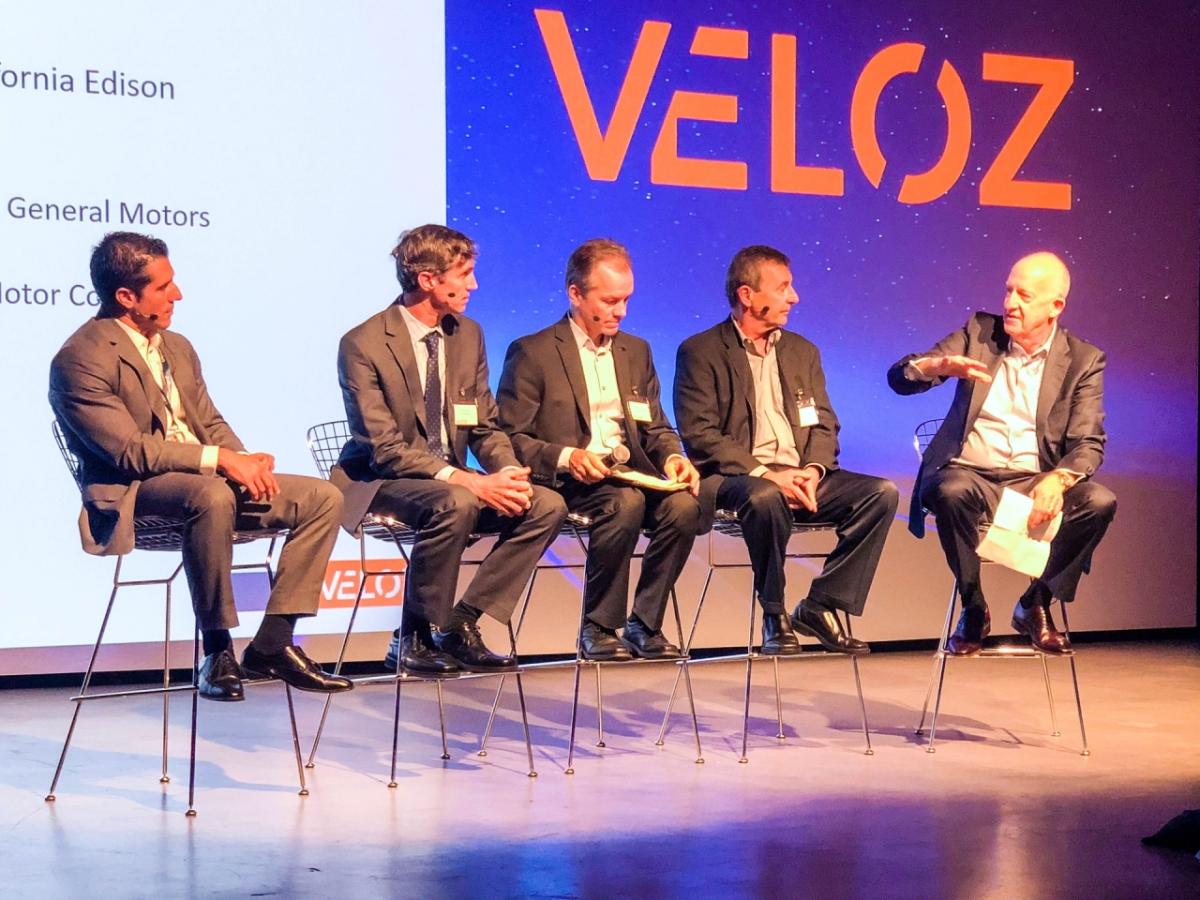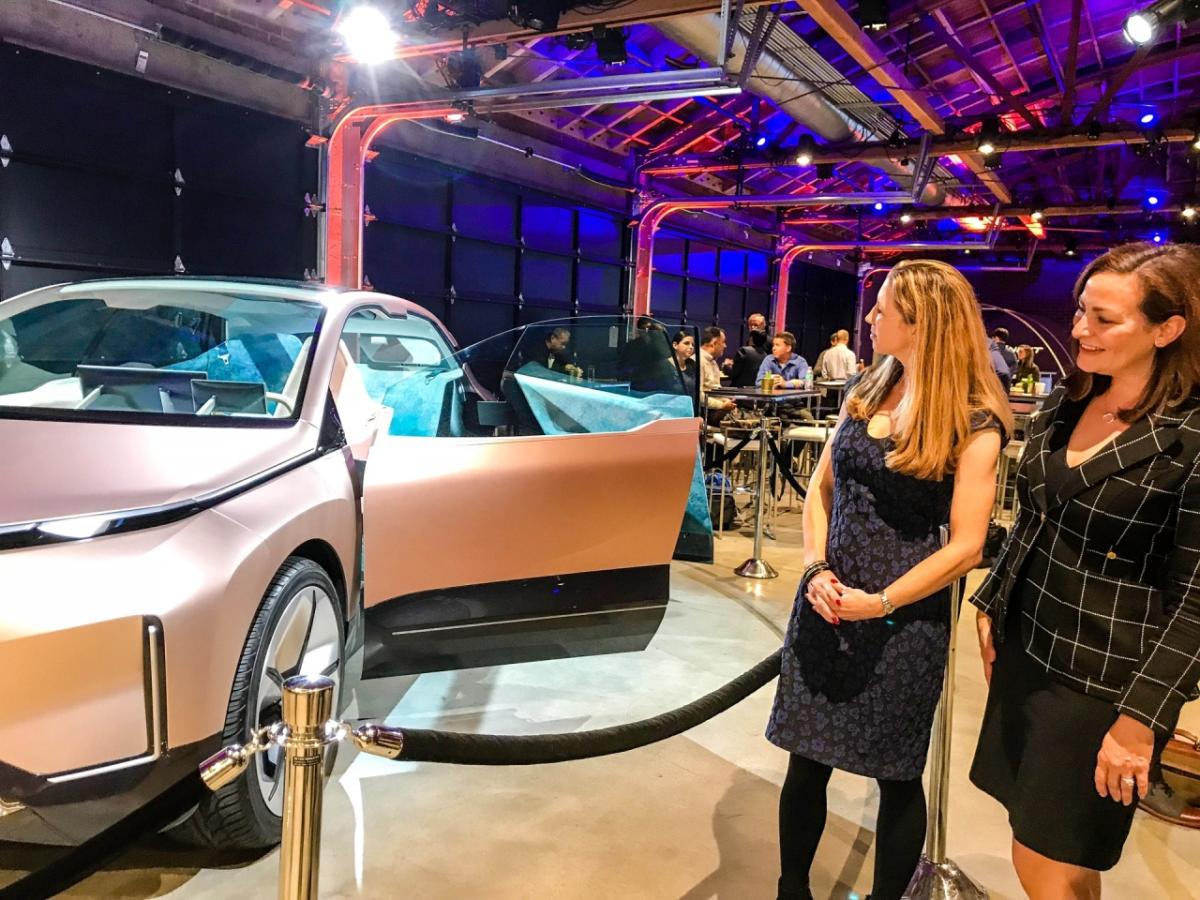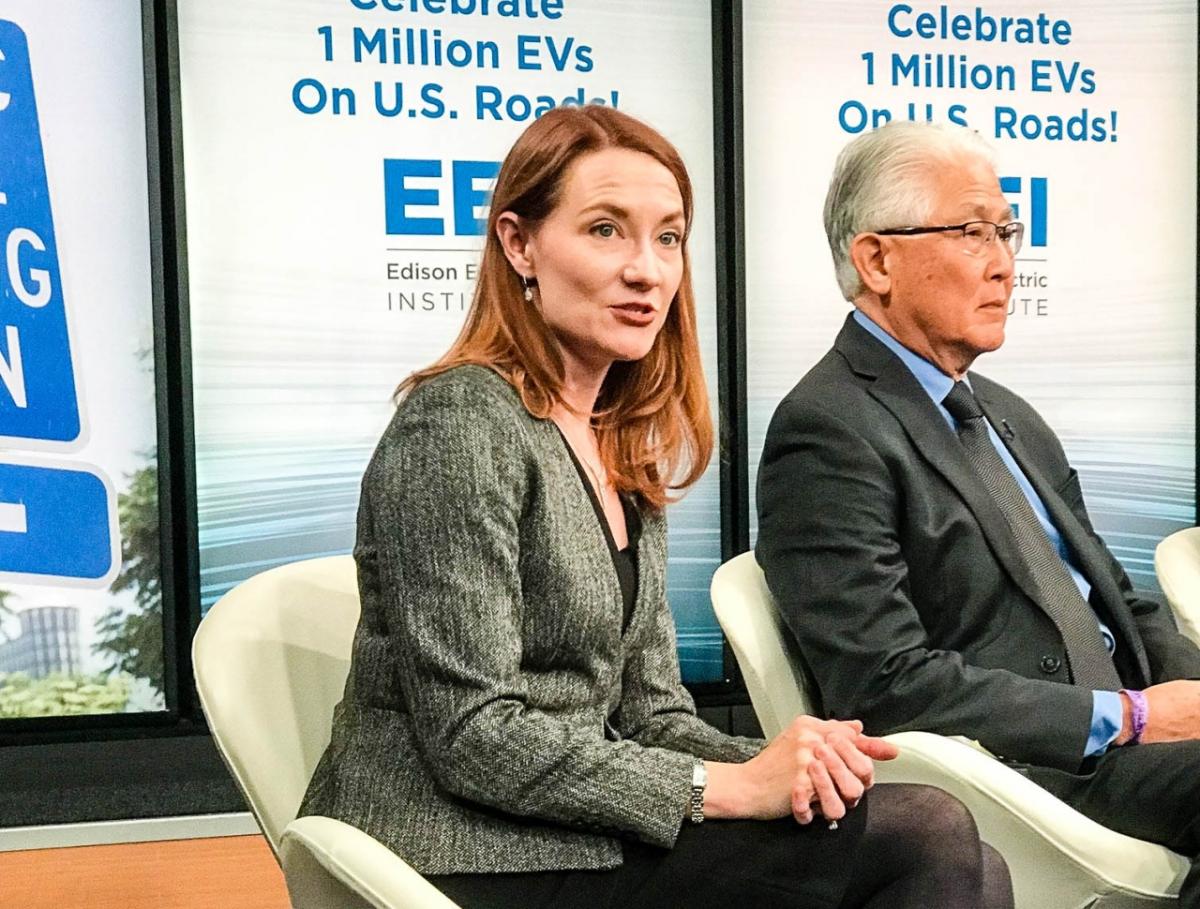SCE, Car Manufacturers Share Insights on Future of EVs
Automakers encourage the utility to keep building charging infrastructure and educating the public about EVs at Veloz forum.
SCE, Car Manufacturers Share Insights on Future of EVs
Building infrastructure for charging electric vehicles and educating customers about EVs are two key things electric utilities should be doing to help accelerate the adoption of electric cars in California, according to automakers who joined Southern California Edison President Ron Nichols in a recent panel discussion.
In a wide-ranging discussion, representatives from General Motors, Nissan, Honda and Kia shared their insights with Nichols at a forum entitled, “California’s Electric Car Culture: Putting the Pedal to the Metal,” hosted in Los Angeles by Veloz, an organization whose purpose is public awareness of electric transportation.
“What automakers are saying lines up perfectly with our EV strategy,” said Katie Sloan, SCE’s director of Transportation Electrification, after the forum. “Building out charging infrastructure and market education are key components of SCE’s proposed $760 million Charge Ready program for passenger vehicles that we currently have before the California Public Utilities Commission.” If approved, the expansion of Charge Ready will add 48,000 EV chargers within SCE’s service area.
In the current pilot phase of the program, SCE is installing about 1,250 chargers at Southern California locations, and hopes to secure approval to install 1,000 more.
Other points made by automakers during the session were:
- California is doing all the right things. The state government has accelerated the acceptance of electric cars by doing more than other states to install infrastructure, to incentivize consumers and to work with manufacturers on getting EVs to market.
- If California can continue to export its knowledge, policies and best practices to the rest of the states, EV adoption will accelerate nationwide.
- Word of mouth from early EV adopters is better than any other marketing. Once drivers own or lease an EV, they want to stay with an EV.
- As charging infrastructure is being built out, plug-in hybrids will suit many customers before they’re ready to make the transition to full battery EVs.
- Sales of battery EVs will increase as battery range increases and the cost of battery technology comes down.
Once cars get to a range of more than 200 miles per charge, customers prefer battery EVs over plug-in hybrids.
“This panel is what Veloz is all about,” said Nichols, who is also a Veloz board director. “One of the major barriers to adoption of electric vehicles is awareness, and the major focus of Veloz is to make people aware of the status of the technology, the types of models that are available, the rebates and national incentives that exist and how great electric cars are to drive and to own or to lease.”
“It’s absolutely essential in California that we work to electrify all transportation in the state and to have all the key players around the table — and certainly at the leadership level,” said Josh Boone, Veloz executive director. “It’s key that utilities join us in the Electric for All awareness campaign because clean electricity is the fuel of today and of tomorrow.”
In Washington, D.C., Jill Anderson, SCE’s vice president of Customer Programs and Services, was at an event hosted by Edison Electric Institute recently to celebrate the millionth EV on U.S. roads. (The nation reached the one-million mark at the same time California’s EV sales approached 500,000, according to Veloz’s monthly electric car dashboard.)
“Transportation electrification is, in fact, a major pillar in SCE’s pathway to achieving California’s aggressive climate and air quality goals,” Anderson said, noting that SCE sees the need for more than 7 million EVs on California’s roads by 2030 to meet those goals. “That’s why I was excited to be in Washington to celebrate this important milestone in the transformation of the transportation sector.”
A report released during the event by EEI and the Institute for Electric Innovation forecasts that the next million EVs will be on U.S. roads by early 2021. The report also projects the number of EVs on U.S. roads will reach more than 18 million in 2030.





